TAIWAN UNDER JAPANESE COLONIAL RULE, 18951945
TAIWAN UNDER JAPANESE COLONIAL RULE, 18951945

History, Culture, Memory
EDITED BY
LIAO PING-HUI AND DAVID DER-WEI WANG

Columbia University Press
New York
CUP wishes to express its appreciation for assistance given by the Council for Cultural Affairs, Taiwan, ROC, and the Chiang Ching-kuo Foundation for International Scholarly Exchange toward the cost of publishing this book.
Editorial Board for Taiwan Studies
Liao Ping-hui (Tsing-hua University, Taiwan)
Fujii Shz (Tokyo University)
David Der-wei Wang (Harvard University)
Columbia University Press
Publishers Since 1893
New York Chichester, West Sussex
cup.columbia.edu
Copyright 2006 Columbia University Press
All rights reserved
E-ISBN 978-0-231-51081-3
Library of Congress Cataloging-in-Publication Data
Taiwan under Japanese colonial rule, 18951945 : history, culture, memory / edited by Liao Ping-hui and David Der-wei Wang.
p. cm.
Includes bibliographical references and index.
ISBN 0231137982 (cloth)
1. TaiwanCivilization20th century. 2. TaiwanCivilizationJapanese influences.
I. Liao, Binghui. II. Wang, Dewei.
DS799.712.T38 2006
951.24904dc22
2005051798
A Columbia University Press E-book.
CUP would be pleased to hear about your reading experience with this e-book at .
This book is dedicated to the memory of Huang Wu-chung (19492005), writer, editor, collector, scholar, teacher, and pioneer in Taiwans New Literature movement fieldwork.
CONTENTS
This volume brings together essays by leading scholars in the field to offer comparative perspectives concerning Taiwan under Japanese colonial rule. While much has been written about the European and American empires, scholars tend to pay less attention to the development of colonialism and modernity in East Asia. As editors, we hope to fill in these gaps as we focus on Japans first and also its last colonyTaiwanconcentrating on such issues as language and ethnic identity, colonial policy and cultural hegemony, art and literature, historical memory, and postcolonial aftermaths, among others.
This volume originated in a conference held at Columbia University in March 2001 on the topic of history, culture, and memory; the event was sponsored by Taiwans National Science Council, with additional generous support from the East Asian Languages and Cultures Department and the Chiang Ching-kuo Foundation at our host institution. Over the years we have tried to expand on the scope of the original conference by inviting submissions from experts in related fields; during the course of the relatively long editorial process we have also benefited from reader feedback. The publication project was made possible largely through an endowment from Taiwans Cultural Affairs Council.
In addition to thanking these institutions and friends, we wish to express our gratitude to a number of people. Jennifer Crewe, editorial director of Columbia University Press, was most congenial and patient in arranging the publication of this volume. Robert Christensen read through most of the papers and offered indispensable comments, but Kerri Sullivan went even further in rendering them more readable and coherent. Attia Miller, Juree Sondker, and Philip Leventhal were helpful in facilitating the publication process of the book. Several of Ping-hui Liaos research assistants at Taiwans National Tsinghua University not only carried on voluminous correspondence with contributors but also undertook the difficult task of reformatting the papers; in this regard, Yi-yun Liu, Phaedra Wang, Yu-wei Lin, Ching-huan Lin, Po-kai Hsu, and Tsai-ling Hsu deserve special mention.
Finally, we would like to dedicate the book to the fond memory of the late Huang Wu-chung, a true friend and colleague in Taiwan studies, who supported our project from the start in his capacity as director of cultural commission but regrettably passed away prematurely at the age of fifty-seven on April 7, 2005.
Liao Ping-hui and David Der-wei Wang
This volume represents a first attempt to discuss colonialism and modernity in East Asia from the perspective of subjects very different from those that continue to occupy the attention of postcolonial scholarswith the probable exceptions of Gayatri Spivak and of Prasenjit Duara, who have recently begun to map territories that did not attract European imperial forces. For many reasons Taiwan should regularly be featured in comparative colonial and postcolonial studies, but, regrettably, it has managed only to catch the eye of social scientists, who have considered Taiwan alternately as a window on China, a cold war bastion of freedom and modernization against communism, a minidragon of an economic miracle, a state without nationhood, the first Asian country to hold a general election, and a cosmopolitan albeit marginal Chinese polity whose renegade province status has been renegotiated in terms of one state, two systems since the handover of Hong Kong in 1997.
Occasionally there are book chapters and even entire books in English or other Western languages devoted to contemporary Taiwan arts and literature, but they are written in a third-world context or try to respond to global-local cultural dialectics within the framework of modernism, nativism, and Asian popular or visual culture. They tend to bypass the historical period most consequential to the formation of the complex identity of the island: Taiwan under Japanese rule, from 1895 to 1945.

Together with Pescadores, Taiwan was ceded to Japan in perpetuity on May 8, 1895, by the Qing in the Treaty of Shimonoseki  , which marked the defeat of the Manchu empire in the first Sino-Japanese War. For the fifty years that followed, Taiwan was considered a second son and a younger brother of Okinawa, thus holding a special place in the heart of the emperor in Tokyo.
, which marked the defeat of the Manchu empire in the first Sino-Japanese War. For the fifty years that followed, Taiwan was considered a second son and a younger brother of Okinawa, thus holding a special place in the heart of the emperor in Tokyo.
As a Japanese colony Taiwan is arguably distinct in several ways. First of all, Taiwan was the first and also the last of Japans colonies. It underwent at least four stages of colonialism under Japanese rule: assimilation as the main policy from 1895 to 1919, integration from 1919 to 1930, differential incorporation and coercion from 1930 to 1937, and the subjugation (kminka , literally meaning Japanization or imperial subjectification) and mobilization of imperial subjects to participate in the holy war in Asia from 1937 to 1945.
, literally meaning Japanization or imperial subjectification) and mobilization of imperial subjects to participate in the holy war in Asia from 1937 to 1945.
Taiwan was considered an extension of Japan, and shared a common script and race. Taiwan may not have been unlike other colonies when viewed at the turn of the last century from the comparative perspective adapted by Benedict Anderson. However, the destinies of individuals and collectives rendered Japanese colonialism in Taiwan relatively unique. It is to address the complexities of this colonial experience and legacy that essays by leading scholars in Taiwan, Japan, and the United States have been collected here.
Between 1895 and 1945 China was in the hands of warlords, while Japan was beginning its modernization processes and launching its Greater East Asia Co-Prosperity Sphere 
Next page
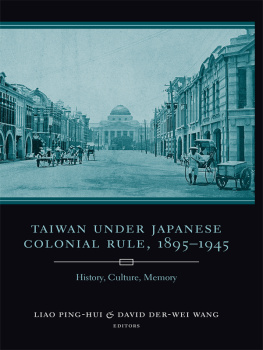

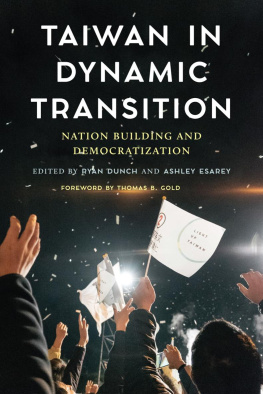
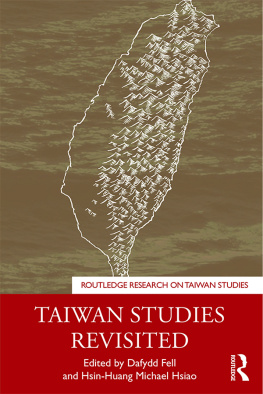
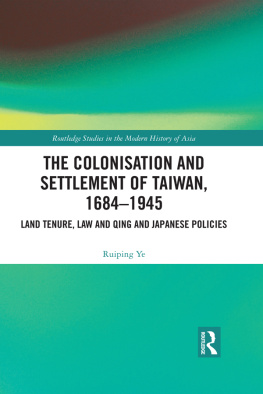
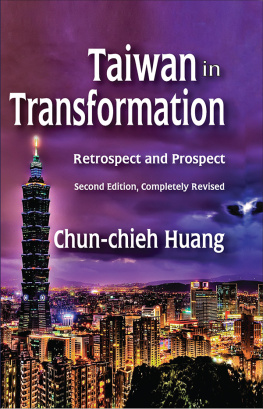
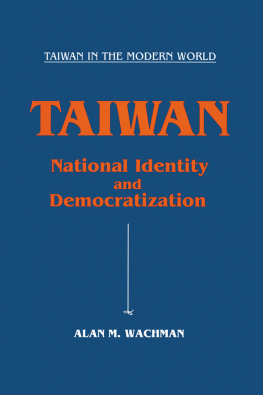
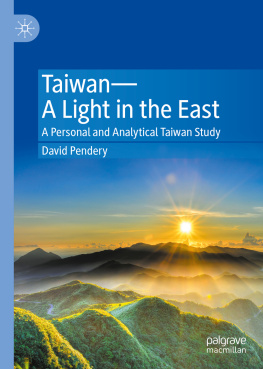
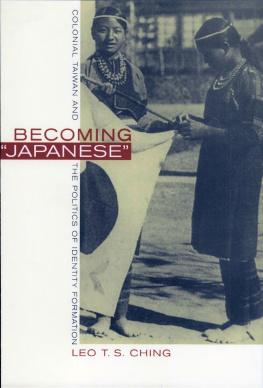



 , which marked the defeat of the Manchu empire in the first Sino-Japanese War. For the fifty years that followed, Taiwan was considered a second son and a younger brother of Okinawa, thus holding a special place in the heart of the emperor in Tokyo.
, which marked the defeat of the Manchu empire in the first Sino-Japanese War. For the fifty years that followed, Taiwan was considered a second son and a younger brother of Okinawa, thus holding a special place in the heart of the emperor in Tokyo. , literally meaning Japanization or imperial subjectification) and mobilization of imperial subjects to participate in the holy war in Asia from 1937 to 1945.
, literally meaning Japanization or imperial subjectification) and mobilization of imperial subjects to participate in the holy war in Asia from 1937 to 1945.